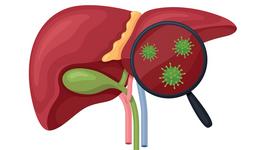FDA Grants Dual Designations to Arbor's Gene Editing Therapy for Rare Kidney Disease
CMN Intelligence - The World’s Most Comprehensive Intelligence Platform for CRISPR-Genomic Medicine and Gene-Editing Clinical Development
Providing market intelligence, data infrastructure, analytics, and reporting services for the global gene-editing sector. Read more...
Lay summary - new treatment in development for rare kidney disease
A new potential treatment for a rare genetic kidney disease has received special recognition from the United States Food and Drug Administration (FDA). The treatment, called ABO-101, is in development for primary hyperoxaluria type 1, a condition where the body produces too much oxalate – a natural chemical found in many foods that normally passes through the body as waste.
In patients, the extra oxalate combines with calcium to form crystals that damage the kidneys, leading to kidney stones and kidney failure. Developed by Arbor Biotechnologies, ABO-101 uses gene-editing technology to reduce oxalate production in the liver through a one-time treatment. Clinical trials are expected to begin in early 2025 to test the treatment's safety and effectiveness in both adults and children.
Arbor Biotechnologies announced in a recent press release that the FDA has granted both orphan drug designation and rare pediatric disease designation to ABO-101 for the treatment of primary hyperoxaluria type 1 (PH1), a rare genetic kidney disease.
ABO-101 is a novel, investigational gene-editing therapy designed as a one-time liver-directed treatment that permanently deactivates the HAO1 gene to reduce PH1-associated oxalate production. The candidate utilises a lipid nanoparticle delivery system (licensed from Acuitas Therapeutics) encapsulating messenger RNA expressing a Type V CRISPR Cas12i2 nuclease and optimised guide RNA targeting the HAO1 gene. (1)
Targeting the HAO1 gene to treat more PH1 patients
Primary hyperoxaluria (PH) is a group of rare, autosomal recessive metabolic diseases that are characterised by excess oxalate production by the liver and subsequent accumulation of oxalate in the kidneys and other organs.
Three main disease subtypes (I, II, and III) have been described, and these arise through mutations in distinct enzymes. PH type I (PH1), which is the most prevalent and severe subtype, is estimated to affect 1-3 individuals per 1,000,000 people in the general population (Source: www.raredisease.org).
PH1 arises through mutations in the AGXT gene, which encodes the alanine-glyoxylate aminotransferase (AGT) enzyme. AGT catalyses the conversion of alanine and glyoxylate to pyruvate and glycine, respectively. When active AGT is absent in the peroxisome, i.e., in PH1, glyoxylate is oxidised to oxalate in the cytosol, leading to high levels of oxalate in the blood and urine, which can result in kidney stones, kidney failure, and other complications.
PH is incurable and current treatment approaches focus on symptom relief and preventing oxalate accumulation in the kidneys and blood vessels. Oxalate accumulation is managed through a combination of high fluid intake and the use of prescription siRNA-based medicines designed to indirectly reduce oxalate production by targeting enzymes involved in the oxalate biosynthesis pathway.
Because PH1 can arise through many different mutations in AGXT, which rules out the possibility of a single gene correction approach to treat all patients, researchers have turned to the HAO1 gene as a target to reduce oxalate build-up in PH1. This gene encodes the glycolate oxidase (GO) enzyme, which plays a key role in oxalate production.
ABO-101 to be evaluated in Phase 1/2 redePHine trial
The Phase 1/2 redePHine trial of ABO-101, which is anticipated to begin in the first half of 2025, will evaluate the safety, tolerability, pharmacokinetics, pharmacodynamics, and preliminary efficacy of ABO-101 in adult and paediatric PH1 patients.
Trial details and pre-clinical data supporting ABO-101 will be presented next week at the 20th Congress of the International Pediatric Nephrology Association (IPNA) in Cape Town, South Africa.
The FDA designations follow IND clearance for ABO-101 in December 2024 and qualify Arbor for various development incentives, including tax credits, application fee exemptions, market exclusivity, and potential eligibility for a paediatric priority review voucher upon approval.
We will continue to update you on ABO-101 and the redePHine trial as new developments emerge.
For a complete overview of current gene editing clinical trials, check out CRISPR Medicine News' Clinical Trials Database.
References:
1. McGaw C, Garrity AJ, Munoz GZ, et al. Engineered Cas12i2 is a versatile high-efficiency platform for therapeutic genome editing. Nat Commun. 2022 May 20;13(1):2833.
To get more CRISPR Medicine News delivered to your inbox, sign up to the free weekly CMN Newsletter here.
Tags
ArticleNewsClinical News UpdatesPrimary hyperoxaluria (PH)Arbor Biotechnologies
CLINICAL TRIALS
Sponsors:
Base Therapeutics (Shanghai) Co., Ltd.
Sponsors:
Base Therapeutics (Shanghai) Co., Ltd.







